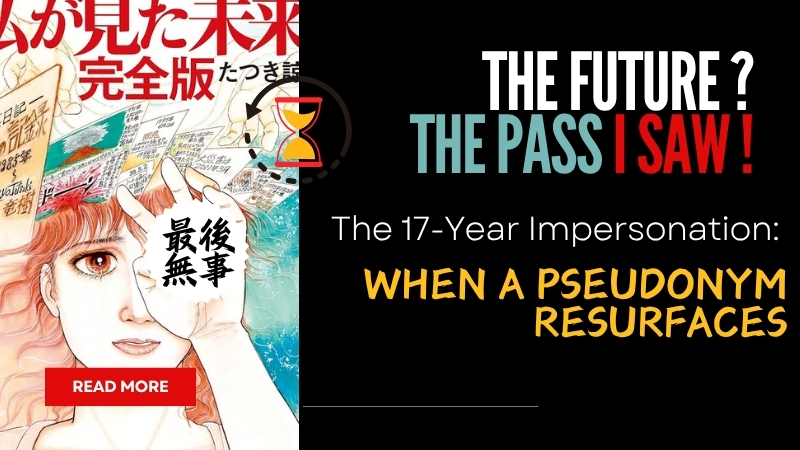
Identity Theft in the Creative Industry: The Ryuju Ryo Case and Its Intellectual Property Implications
The 17-Year Impersonation: When a Pseudonym Resurfaces
Between 1994 and 1998, Japanese manga artist Ryuju Ryo published a series of sci-fi disaster comics containing eerily accurate earthquake predictions. After retiring in the late 1990s, the artist faded from public view—until 2011, when an impostor emerged online.
This impersonator:
Repackaged original prophetic content as text posts
Added new "predictions" to capitalize on subsequent earthquakes
Gained publisher interest for a book deal due to renewed accuracy
The scheme unraveled when the real Ryuju Ryo intervened during contract negotiations, exposing:
Unauthorized use of the pen name
Violation of moral rights under Japanese copyright law
Legal Breakdown: Three Intellectual Property Flashpoints
1. The "Zombie Pen Name" Dilemma
Under Japan’s Copyright Act Article 55, pen names retain protection indefinitely—even after retirement.
Loophole: Unregistered pen names can be exploited in non-competing fields (e.g., the impostor posed as a "commentator" rather than a manga artist).
2. The Remix Paradox
The impersonator’s actions straddled two violations:
Reproduction rights infringement (copying original manga content)
False attribution (misleading readers via the stolen pen name)
Yet, any new predictions created by the impostor might qualify as independent works—a legal gray zone.
3. Publisher Due Diligence
Japan’s Copyright Act Article 113 requires publishers to verify identities through:
Cross-checking historical records
Requesting identity documentation
Failure to do so risks contributory liability.
Protecting Creative Identities: Lessons
✅ Trademark Your Pen Name
Register under Class 16 (publications) and Class 41 (entertainment) in Japan (¥34,000/~$230 per class for 10 years).
✅ Create a "Pen Name Will"
Designate an heir (family member or trust) to manage post-retirement rights via notarized documentation.
✅ Blockchain Timestamping
Use services like Japan’s Contents Blockchain Initiative to permanently log:
Original works with timestamps
Proof linking pen names to legal identities
Broader Implications
This case reveals systemic gaps:
Unregulated "Predictive Content"
No legal framework exists to assess the authenticity of future claims.
Digital Identity Verification
Platforms lack tools to validate pen names against real identities, endangering retired creators.
Reform in Progress: Japan’s Agency for Cultural Affairs is drafting a "Classic Pen Name Registry" to flag high-risk impersonations.
▶️ The Ethical Quandary:
Had the impostor’s new predictions kept "coming true," could they have legally claimed to be Ryuju Ryo? This paradox underscores IP law’s struggle to adapt to digital-age deception.
(Legal analysis references Japan’s 2023 Supreme Court ruling in the "Showa Diva Pen Name Case.")
Why This Matters
For creators, publishers, and platforms, this case is a wake-up call: In the internet era, your identity—not just your work—needs proactive protection.
Source of the image on this page: trademarkmacau.com
We offer four core services:
If you have any inquiries, please feel free to contact us:
※We will get back to you as soon as possible.







